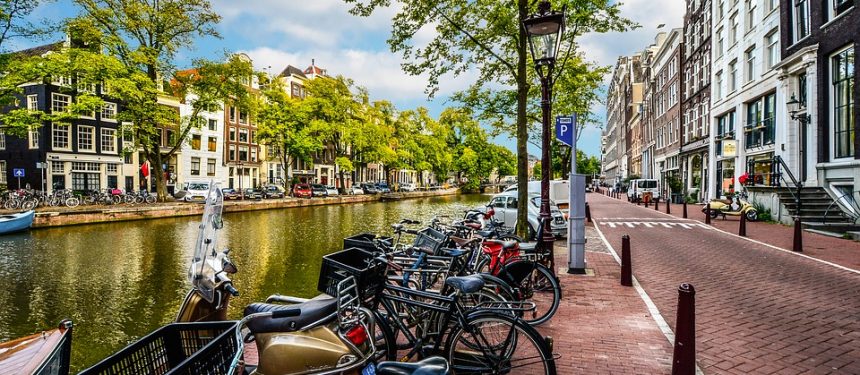The purpose-built student housing market is “good for investment” in 2019, a new study by StudentMarketing confirmed, with demand consistently outstripping supply in Europe, as the continent becomes more and more popular with international students.
News and business analysis for Professionals in International Education
Have some pie!
PBSA “a good investment” says StudentMarketing as demand outstrips supply
 Amsterdam is one of the cities with the best investment potential. Photo: Kirkandmimi/Pixabay
Amsterdam is one of the cities with the best investment potential. Photo: Kirkandmimi/Pixabay Student housing as a sector is beginning to consolidate and mature, with many opportunities for high returns the study explained, counting over 500 investors, developers and operators over Europe.
“Germany continuously increases the budget for the international exchange”
In 2018 transactions reached almost €10bn and the forecast is rosy for the future, too. The 20-year data showing that demand doesn’t decrease in economic downturns, which makes student housing recession proof, the report argued.
Several investment managers, the study found, consider allocating more capital to student housing and more than 200 investment managers now rank student housing as fourth for development and investment.
More than 350 new PBSA projects with a combined 105,000 beds are in the pipeline for the next two years. But this €15bn investment is not enough to meet the demand, the study warned.
In continental Europe, demand heavily outstrips student housing supply and is growing, with most student houses recording close to 100% occupancies. On average there are beds only for 15% of students, although the picture varied across the cities surveyed.
Asked to pinpoint the top-three cities for potential investors, Paulina Kropacova, senior research manager at StudentMarketing named Berlin, Amsterdam and Paris as the top magnets for international students.
“When it comes to investment potential, Berlin, Amsterdam and Paris are the markets where national governments are actively and successfully working on attracting international students,” she told The PIE News.
“These markets are popular among students with higher disposable income… that are likely to look for structured accommodation in PBSA establishments. Overall, we observe continuous interest in major cities in France, Germany, Italy, Netherlands, Spain, Austria from investors over the past years.”
The study listed Berlin, Amsterdam and Paris together with Barcelona and Milan as “winning cities,” with a large international student populations, a number of highly-ranked institutions, and English-taught programs.
“Berlin, Amsterdam and Paris are where national governments are attracting international students”
Features such as the increased availability of English-taught programs (from 55 bachelor’s in 2009 to 2,900 in 2017), low tuition fees and a variety of highly-ranked institutions are making continental Europe more and more attractive to international students as a whole.
But Europe is investing in its popularity also with well-funded marketing efforts at university and city level, and a tendency towards liberalising student visa and work-rights policies for non-EEA students to some extent, the study noted.
“There are countries such as the Czech Republic that do not impose working hours limitation for international students, compared to the UK, where students are allowed to work up to 20 hours per week,” Kropacova noted.
“When it comes to post-study work rights, there’s another group of countries, such as Germany, where…citizens of other countries may extend their residence permit by up to 18 months after graduating in order to find a suitable job.”
Germany is also an example of a country seriously investing in its internationalisation efforts, Kropacova noted.
“Germany continuously increases the budget for the international exchange of students and researchers through DAAD, while (among other activities) supporting creation of international degree programs, strategic partnerships and providing information and advisory services to HEIs and exchange stakeholders,” she said.
Among international students, the lion’s share of the demand is for private PBSA with communal areas and amenities, as noted in another study by StudentMarketing last year. Students are paying on average €610 per month across Europe, from €473 in Budapest to €1,300 in Milan, for a private single studio.
The data was collected throughout 2018. A preview of the data was presented at the end of December, while the full study was released on January 21.
Still looking? Find by category:


